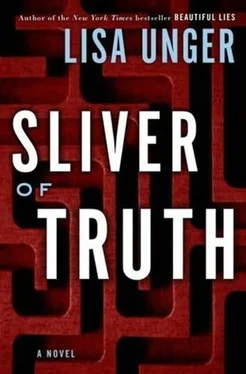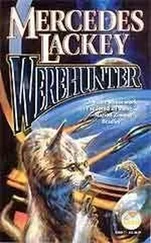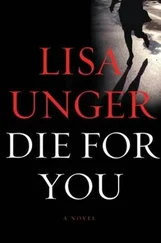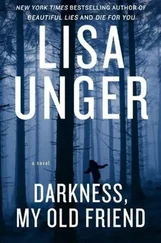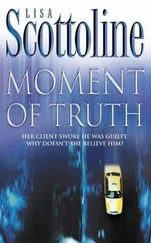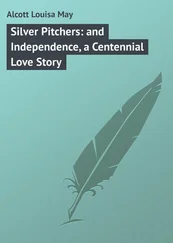Max was not a handsome man. His skin was sallow and pockmarked from the acne he’d suffered as a teenager. His dark hair was thinning. He was big, awkward with his size. But he had a magnetic charisma that drew people to him like metallic dust. And, of course, there was his outrageous wealth. This drew people as well. But even though he was always surrounded by people, he carried an aura of aloneness. In fact, he was the loneliest man I’ve ever known. Maybe because he had so many secrets to hide.
After being dropped off at my apartment, I lay on the couch in the dark and searched my memories again for Max, for moments when I might have glimpsed the man and not my creation of him. But I couldn’t get past the myth, the one to which I had been clinging. When I was a kid, I used to bring my face up close to the television screen and try to look beyond its edges. I was sure there was more to see. But there was nothing, just the two-dimensional image. Now I tried to look beyond the borders of my memory. There was nothing there.
I tried not to think about Esme and how she’d died. I remembered what Jake had said, about how scared she’d been. I’d seen the fear, too. It seemed she’d had good reason to be afraid. Who had killed her and why, I couldn’t begin to imagine. I recalled the last words we’d said to each other.
I’ll keep swinging until I know all the answers, I told her.
You do and you’ll wind up like that New York Times reporter, she’d answered.
The memory was ugly and I cringed inside thinking of it.
I PERIODICALLY PICKED up the phone and dialed Jake’s cell, got his voice mail, and left a message or hung up. I tried not to think about the blood on his floor or what kind of trouble he might be in, or if he was hurt…or worse. Otherwise, my panic and helplessness were like something alive in my chest.
I called Ace.
“Took you long enough to get back to me,” he said by way of answering the phone, presumably having seen my number on his caller ID. Or maybe I was the only person who ever called him. He was living on the Upper West Side near Lincoln Center in a one-bedroom apartment looking out over the Hudson. It was pretty nice, though sparsely decorated with just a couch, desk, computer, and television in the living room, a bed and dresser in the bedroom. He claimed he was trying to write a novel, a claim that annoyed me to no end for reasons I can’t explain.
“I’ve got things going on, Ace,” I said, maybe more harshly than he deserved. “The whole world doesn’t revolve around you.”
“Christ,” he said. “What’s your problem?”
I unloaded. I told him everything that had happened over the last few days, everything I’d learned, everything I’d found, about my trip to Detroit, about Esme, about Jake missing. I even told him about the text message in spite of its ominous warning. When I was done I went silent, waited for him to make some sarcastic comment, tell me to move on, or claim that I was losing it completely. He didn’t say anything right away. I listened to him breathing.
“Ace, are you even listening?”
Sometimes he’d channel-surf when he was talking to me, or I’d hear him tapping on his keyboard, engaged in an online chat during our conversation. But God forbid I’d get a call on the other line while he was talking, or if he got the sense I wasn’t giving him my full attention. He’d flip out. I know; he’s kind of an asshole.
“I’m listening,” he said. He sounded strange and grave.
I paused. “Did you ever get the sense that Max was someone…else?” I asked. “Did you ever see anything in him that would make you think there was something wrong with him? Like really wrong with him?”
He let go of a sigh, or maybe he was exhaling smoke-even though he’d given up cigarettes as part of his detox after rehab.
“Well,” he said softly, “I never saw him the way you saw him.”
I didn’t say anything; I could tell he was collecting his thoughts.
“He was always a hero to you,” he said finally. “You didn’t know he was your father, but maybe on some cellular level you did. You used to look at him with these wide eyes, this adoration on your face. I never understood your relationship. It confused me as a kid. I was never sure what you were seeing.”
I was surprised by what he said, by its presence and wisdom.
“What did you see?”
“Honestly? I saw someone angry and very lonely, someone who glommed on to our family because he didn’t have one of his own. He was always drunk, Ridley, with some prostitute on his arm.” He paused a second and inhaled sharply, telling me definitely that he was smoking. “I’m not sure why Ben and Grace allowed him so much unsupervised time with us. I was never sure what they saw in him, either.”
I took this all in.
“You know he hit me once, hard in the mouth,” he said.
“When?” I asked, surprised.
“I was thirteen, maybe. I was arguing with Mom.” I hadn’t heard him call her that in so long. He always called our parents Ben and Grace, as a way to express the distance he felt from them, I guess. “We were screaming at each other-I can’t remember about what. Seems like there was so much screaming between us. I can’t remember a whole lot of peace in our house, can you?”
I couldn’t answer him. We’d had such different childhoods, though we grew up in the same house with the same people. I’ve said before that the two of us extracted different people from our parents, saw different faces. From Max, too, I guess. Max had never so much as raised his voice to me, never mind his hand. He’d never even been stern with me.
Ace didn’t wait for me to answer. “He came at me quickly,” he said. “Told me not to speak to my mother like that, and he clocked me in the jaw.”
“With a closed fist?”
“Yeah. Probably not as hard as he could have, but hard enough.”
“What did Mom do?”
“She freaked. She kicked him out. She comforted me, put ice on my jaw, but she made me promise never to tell Dad.”
“Why not?”
He was quiet for a second. “I don’t know.”
I felt sorry for him, also angry with Max that he would hit my brother like that, and confused that my mother would want to keep the incident from my father.
Ace lied a lot; it’s an element of the addictive personality. He exaggerated much of the discord in our house, or so I thought most of the time. I’d always believed that it was his way of excusing the bad choices he’d made over the years. But he wasn’t lying about this. It lacked the usual self-conscious drama. It wasn’t followed by a tirade about how it made him feel and what it led him to do to himself.
“Do you believe me?” he asked. He sounded almost sad. The curse of the liar: When you have a truth to tell, no one believes.
“Of course I do,” I said. If we’d been beside each other, I would have wrapped my arms around him. “I’m sorry, Ace.”
“For what?”
I thought about it for a second. It seemed lonely for him that he’d had these feelings about Max. Max was my father’s best friend, my hero, my mother’s…I don’t even know what. It seemed so strange and sad that all along Ace was seeing Max as someone else completely, and that he might have been right.
“I don’t know,” I said finally.
I heard the metallic flick of a Zippo, the crackle of burning paper, and a sharp inhale.
“Ridley, is it even possible for you to keep yourself out of trouble?” he said with a long exhale. His usual arrogance and sarcasm were back. It was almost a relief.
“I didn’t ask for this. Not for any of it.”
“Are you sure about that?”
“What’s that supposed to mean?”
“I mean, a year ago you could have chosen to turn away from all of this. You didn’t. Now you have the chance to turn all of this over to that FBI guy, but you’re not going to. You’re the one who’s always going on and on about choices, how they impact the course of our lives, blah, blah, blah. So what’s it going to be?”
Читать дальше
